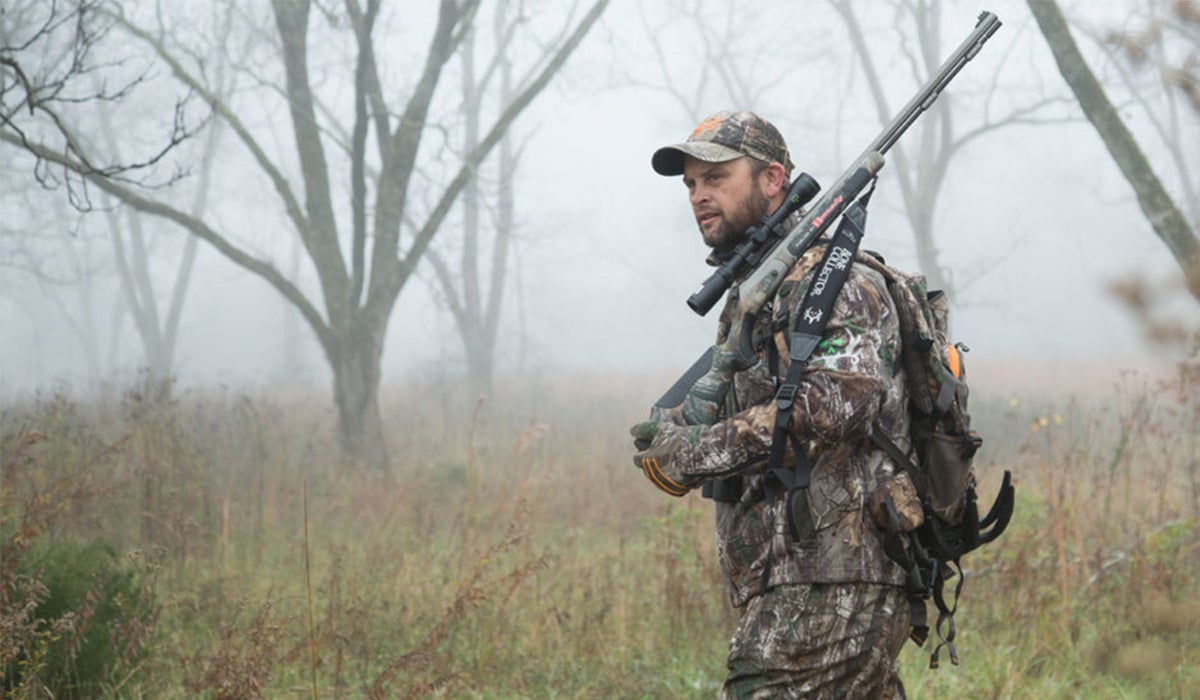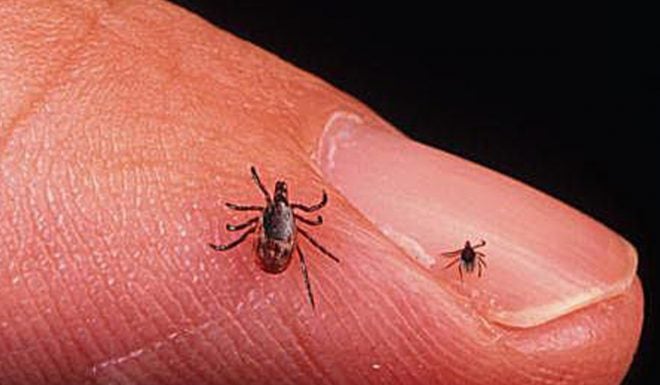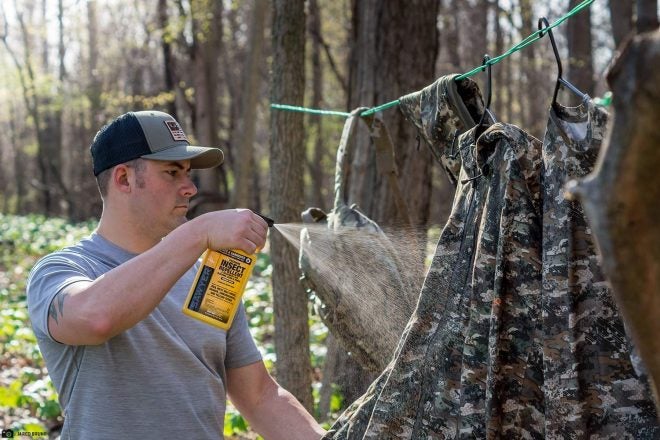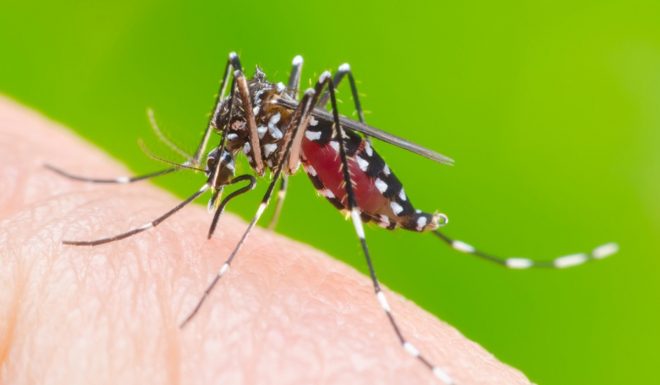Five Diseases That Can Ruin Your Hunting Season
Derrek Sigler 09.01.20

No one ever wants to get sick, or come down with a condition that is uncomfortable and/or unhealthy. It’s worse when it happens during hunting season. This is the time of year when we want to take time off TO hunt, not BECAUSE we went hunting. There are so many illnesses, diseases and conditions we can come down with in our regular lives, let’s not add something we can get from going into the woods to the list. Not all of the diseases you can pick up in the woods can kill you, although some can. One thing is certain, one of them can definitely ruin your hunting season, so let’s try to avoid that.
Please note that information on these conditions comes from the CDC and the U.S. Forest Service. Find out more information on the CDC website.
Lyme Disease

Some folks aren’t worried about Lyme disease at all, but you should be. This one hits home for me because my wife has it. What’s worse, we didn’t know she had it for a couple years. She just had serious health issues, but no one could figure it out. Let me scare you with this one. Lyme can cause muscle fatigue that can turn into loss of muscle control. It can cause mental fog leading to memory loss and worse conditions including anxiety, depression, heart conditions and it can be fatal. It is a tick-borne pathogen and the tick that carries it is usually only attached for a short time, like hours or less. The tick is usually round the size of a pinhead, too. Don’t have the bullseye rash? Well, only about 40-50 percent actually do. Lyme test came back negative? The test is only 30-percent accurate – and that is only for two panels, or markers of Lyme. There are more, as well as co-infections that can affect you. Once you have Lyme, it doesn’t go away. If caught early, the treatment is extremely effective and acts faster to get you going again. If it lingers, or you get misdiagnosed, it can take years to get you feeling normal. It is commonly misdiagnosed as Fibromyalgia, or even MS, but a good doctor will catch that. Our doctor specializes in Lyme and she has found that thousands of people have Lyme, but have been diagnosed with something else instead. Oh, and one more thing. It can be transmitted sexually to your partner. It really sucks.
So let’s talk about avoiding Lyme. You may want to start out by treating your clothing and gear with permethrin. Permethrin is an insecticide often used in agriculture. Spraying it directly on the skin can lead to irritation. However, hunters have learned that you can spray it on your hunting clothing before you head afield, and let it dry. Doing so reduces the chances of ticks and other biting insects from coming anywhere near you. If you spray it on and let it dry, it is often odorless and does not seem to spook deer and other game. You can also get tick-proof hunting clothing, like GameHide’s ElimiTick. One of the most common ways hunters get ticks is off the deer when the hunter is field dressing it. I have seen deer that are covered with ticks coming off after the deer was down.
West Nile
If there was ever one creature we could probably do without on this planet, it’d be the mosquito. I can’t think of a single person that doesn’t hate them. Besides being annoying and giving you an itchy spot when they bite, they are also the biggest carrier of disease out there. One of the bad ones right now, but not the only disease, is West Nile Virus. This particular nasty one can cause some varying symptoms. About 1 out of 5 people infected develop a fever with other symptoms such as headache, body aches, joint pains, vomiting, diarrhea, or rash. Most people with these symptoms recover completely, but fatigue and weakness can last long enough to ruin your entire hunting season. One out of 150 people who are infected develop a more severe condition that affects the central nervous system giving you issues like encephalitis, or inflammation of the brain, or meningitis, which is inflammation of the membranes that surround the brain and spinal cord. Those can be life threatening. Let’s just skip all of this, shall we?
Zika Virus
While we’re on mosquito-borne stuff, let’s chat about Zika Virus. This is another one that’s been in the news, and it has some pretty far-reaching implications. If infected with Zika, you usually develop symptoms within a week. Symptoms can be a rash, fever, joint pain, and red eyes. The real danger lies with pregnancy and birth defects, and yes, you can transmit the virus to your partner. Luckily only one every five people infected will have any signs or symptoms, and it’s uncommon to contract it.
Dengue Fever
Dengue is one out of the tropical regions, so for conditions to be ripe for it, the weather must be hot and humid, although it can travel into the northern regions if things go the wrong way. Symptoms usually show up within two weeks of being infected. They may include high fever, headache, vomiting, muscle and joint pains, and a pretty characteristic skin rash. There is a treatment and a cure, as well as an immunization. Very rarely Dengue can develop into Severe Dengue, or Dengue Hemorrhagic Fever. That condition causes bleeding, low levels of blood platelets and blood plasma leakage. You can also get what is called Dengue Shock Syndrome, where your blood pressure bottoms out to dangerously low levels. None of that sounds fun.
This only scratches the surface of what you can pick up from a mosquito, and we didn’t even touch on malaria or other nastiness. How about we skip right to prevention? You have three main types of defense against a mosquito while in the great outdoors. Sprays, like Deep Woods Off, use Deet, or Diethyltoluamide if you want to get all scientific. Sprays work very well to keep the little blood-sucking jerks away, but can be troublesome for hunters looking to keep scent issues from happening. Another option and one that is popular for traveling hunters and anglers, is the use of mosquito netting. The bugs can’t bite you if they can’t reach you, right? There are some hats and gloves that can keep the skeeters from getting to you. Another popular way is by use of a Thermacell device. These units use a small propane cylinder to feed a small burner that heats a medicated tab you replace before each use. It creates an odorless cloud around you that is harmless to you, but mosquitos and other insects don’t want to be near it.
Deadly Nightshade
Switching from diseases you can get from insects, to a poisonous plant that can kill you. Deadly Nightshade, or Belladonna as it is also known as, is a plant from the same family as potatoes. It has a colorful history and is part of much of Greek mythology. It was common throughout Asia and parts of Europe originally, but has now spread to much of the world, including pretty mcu all of North America. In sufficient doses, the poison part of the plant paralyzes nerve endings in the involuntary muscles of the body, such as the blood vessels, heart and gastrointestinal muscles. Symptoms include dilated pupils, sensitivity to light, blurred vision, headaches, confusion and convulsions. It is really harsh on kids, as the berries of the plant look edible and actually have a sweet taste, but two berries can be fatal. That is why knowing your berries is vital. You can also get sick from the plant if you come in contact with the leaves. If you eat a leaf, that is bad news. You can also have a rough time if you cut yourself and let a leaf come in contact with the open wound.
How can you beat this one? The obvious answer first off, is to not eat it. Get a book of wild, edible berries and plants and keep it handy if you plan on foraging. It’s also a good idea to teach your kids about it. Coming into contact with the leaves is yet another great reason to never go afield without a first aid kit. If you get a cut, patch it up so you reduce the risks of coming into contact with anything bad. Remember, you want to stay hunting, fishing and all the other great things we get to do outdoors.
For more information about these conditions or any others you may come in contact with, be sure to consult the CDC website and your local natural resources divisions to see what you may come into contact with. Be safe!





